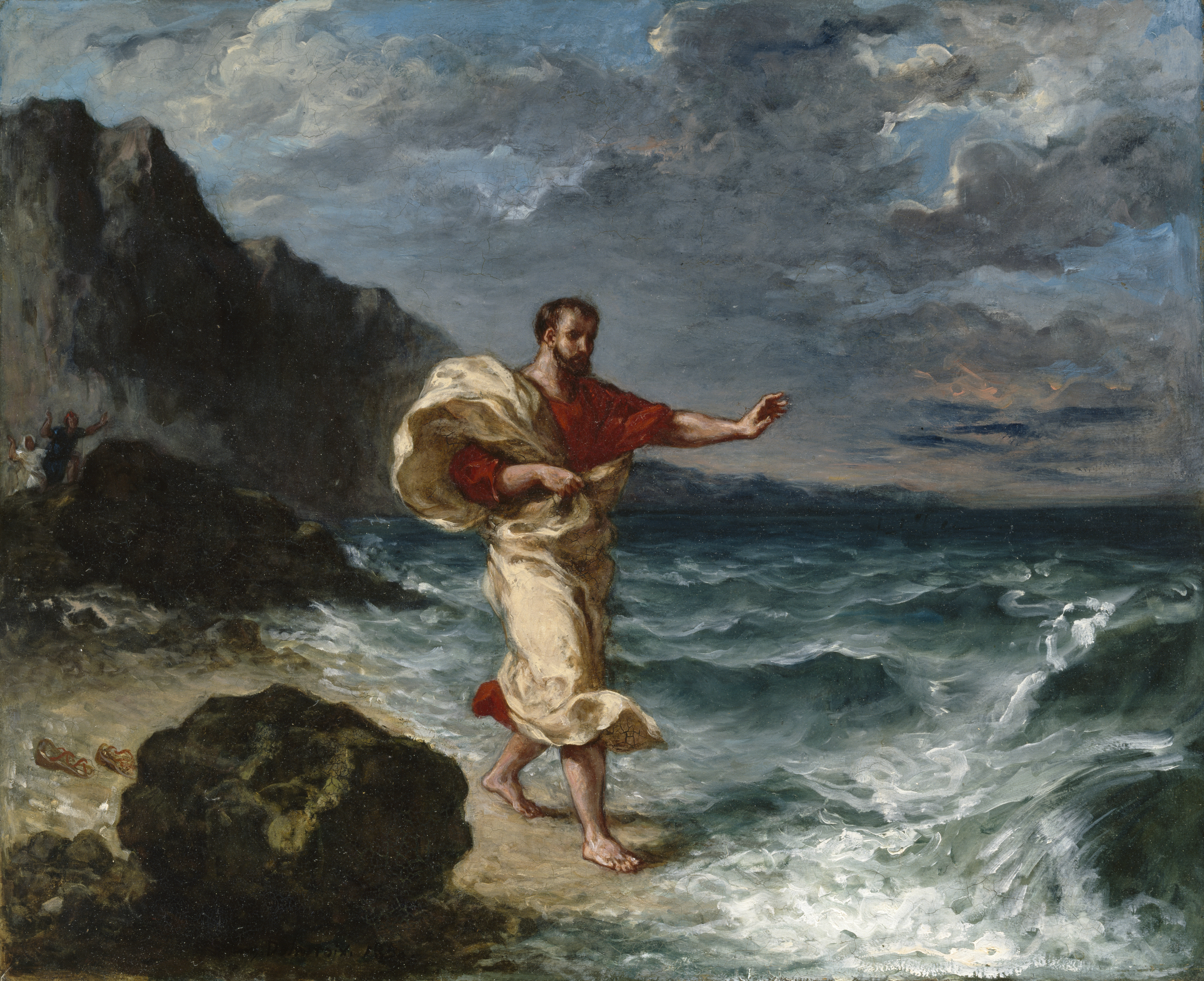When the news came recently that Paul Durcan had died, I pulled from the shelf my copy of his sequence of poems, Crazy about women, published by the National Gallery of Ireland in 1991. They’re all inspired by paintings in the Gallery’s collection. Some of the poems are long, some short; some playful, others penetrating and thoughtful. The paintings are similarly varied, in period, theme and mood.

One of the pictures Durcan selected for treatment is one of my favourites in the Gallery, a mysterious and moving painting by the Netherlandish artist Gerard David, Christ bidding goodbye to his mother. Characteristically, Durcan focusses on the mother: ‘Farewell, my sweetest mother, / Dogsbody given the run around by everybody.’
Another oblique poem that take’s the woman’s viewpoint accompanies Interior with figures (1625) by the obscure Utrecht painter Nicolaes de Giselaer. Durcan imagines that the tiny, yellow-dressed woman in the distance is destined to be married off by her parents, quite possibly unhappily, to the man in the foreground, a dark figure seen from the back.

I go to meet my bridegroom
Whom I have never met before:
Over his arm, my overcoat.In a corner of the chamber
My parents sit in silence.
A place is laid at table –
A place for him
If he can distil himself.He says to me:
May I store my china in your buffet-gast?
I say to him:
You may.
A classical scene by Eugène Delacroix, Demosthenes on the seashore, is brought back home to Ireland, with a satirical twist. (The grand Athenian orator Demosthenes overcame a stammer and practised his skills, it was said, by speechifying while rolling pebbles in his mouth.)

Have you ever encountered a man in Ireland
Whose mouth is not awash with pebbles?
Who is not most himself when attired
In scarlet pyjamas and buff dressing gown
Striding out the seashore to the corner store
To deliver his message to the grocer –
His ultimatum to mankind?
In The meeting on the turret stairs, a piece of Pre-Raphaelite erotic medievalism by Frederic William Burton – and apparently the Irish public’s favourite painting – a knight says farewell to a tearful damsel. Durcan translates the story of illicit love to the present day:

She goes to her bedroom in the turret;
He goes to his motorbike in the basement
Where her brothers are waiting for him
To present him with an ultimatum;
Either you leave our sister alone
Or we will leave you alone
On Utopia Parkway – your lithe and limber torso
On one side of the highway – your helmeted skull
Galloping down the culvert on the other side.
Either way you must pay
For having dared to run away
With our sister in El Lay.

Jack B Yeats’s painting In the tram is dominated by a group of well-dressed women deep in triangular conversation. The poet, though, notices a hatted man sitting in the background, staring morosely ahead and talking to himself in a desperate but Pooterish way:
I am afraid – I confide in my doctor –
After the operation for my duodenal ulcer
That when I am discharged from hospital
I will not be able to cope with the isolation;
That my wife having left me for her brother-in-law
And being myself a middle aged country man
With a clerical position in the city waterworks
With no close friends or relations or acquaintances
I will have no choice but to prostrate myself
Under a train at Sydney Parade
Or in my overcoat with a velour collar
Go for a late night swim in the River Dodder
With stones in my pockets.
And this poem, on the pompous figure of Joseph Leeson by the Grand Tour portraitist Pompeo Batoni, was clearly crying out to be written:

I am a chap
Who dictates his best novels
Standing at the urinalIndeed, it ought to be clear from Batoni’s portrait of me
(A beauty of a chap himself- Batoni)
That I am a chap of the first water.In twenty-seven words:
The sort of chap who even while he waits
His turn to go to the gents
In his mother’s fur hat
Holds himself in
With verisimilitude, tact, ego.
Such ingenuity, sparkle and acuity aren’t that common in poetry. In a tribute in the Irish Times Bernard MacLaverty wrote, ‘He had a totally individual voice which was instantly recognisable on the page with its feelings of concern, its wit, its humanity and its total honesty.’ ‘Voice’ is appropriate, since he was a renowned reader of his own work. Paul Durcan will be missed.

Leave a Reply